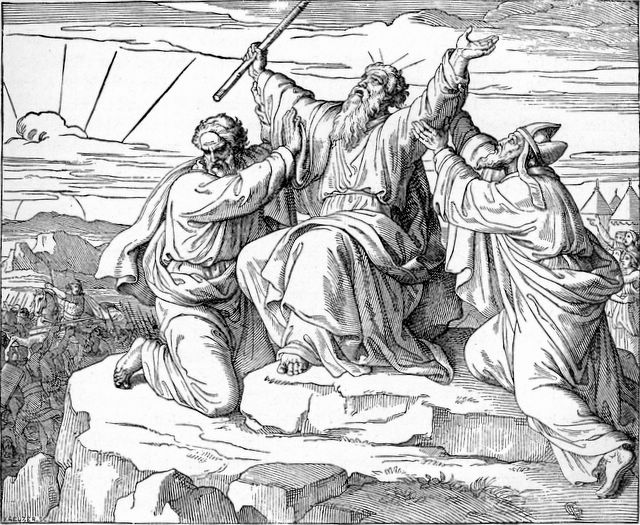Acts 5:12-16
Psalm 118:2-4, 13-15, 22-24
Rev 1:9-11A, 12-13, 17-19
John 20:19-31
“Unless I see the mark of the nails in his hands and put my fingers into the nailmarks and put my hand into his side, I will not believe.”
In his doubt and in his demand for tangible evidence that Jesus had indeed risen from the dead, Thomas sounds very much like a man of our own times. Unless something can be “scientifically proven,” many people are reluctant to believe it. Some even embrace (consciously or unconsciously) what is known as scientific materialism, which holds that only the tangible and material are real and that all phenomena can be explained in terms of the interaction of their material component parts. Thus for a scientific materialist there is no such thing as a self because there is no “I” that is more than the sum of our parts. If we cannot see it or prove that it’s there, it doesn’t exist. Even those of us who are not scientific materialists might still find ourselves fixating on the need for “proof” to support our beliefs. We can glimpse this tendency even in how we might approach this week’s Gospel account of Jesus’ appearance to his disciples after his death. We might say “Here is the proof of Jesus’ Divinity! Here is proof of the Resurrection!”
But the Resurrection of Jesus Christ is ultimately a metaphysical reality that cannot be proven. It is a reality that transcends time and space. Christians do not believe merely that Jesus died and then came back to life. Jesus was not just resuscitated; resurrection is more than that. Christians believe that through Jesus Christ – in his living and in his dying and in his rising from the dead – God defeated death itself. The promise of the resurrection is not merely that we will awaken after we die and go on living as we always did. Eternal life is not just “more of the same”; it is new life. Thus even if people saw Jesus alive after he had died, this does not prove the resurrection. There are always other explanations: Jesus faked his death, the disciples were delirious, etc. But more importantly, even if we accept that Jesus found himself alive again, this does not necessarily mean that he was resurrected. Our belief in the Resurrection rests on faith, not proof. Science can neither prove nor disprove the Resurrection of the Lord because it is an event that does not occur in time and space (which is the purview of science). The Resurrection “answers” a question about ultimate reality and our ultimate destiny.
Today’s Gospel tells us that accounts of the resurrection were “written that you may come to believe that Jesus is the Christ, the Son of God, and that through this belief you may have life in his name.” Here we can see the connection to this Sunday’s first reading, from the Book of Acts. After learning of the resurrection of Jesus, the disciples eventually left their locked room and went out into the world. This reading tells us that faith in the resurrection leads to “life in His name” not only in the sense of ultimately sharing eternal life with God, but also in the sense of living a new and different life in the here and now. The same disciples who fled at the crucifixion and went into hiding suddenly found the courage to go out and perform “many signs and wonders” especially healing people who were sick and broken. They did so even at risk to themselves (“None of the others dared to join them”); faith in the resurrection freed them from fear for a new life.
Faith in the resurrection helps us to find courage, and helps us to believe that how we live ultimately matters. H. Richard Niebuhr once wrote, “We know something of what true goodness is. …We recognize goodness in every form of loyalty and love. Our problem is whether goodness is powerful or whether it is not forever defeated in actual existence by loveless, thoughtless power.” Of course Jesus showed us what true compassion looks like and gave us a model to follow. But his life and his death do more than that. They tell us that darkness and ruthlessness and death are not the final answers. May this give us hope. May this give us the courage to live as we should.



